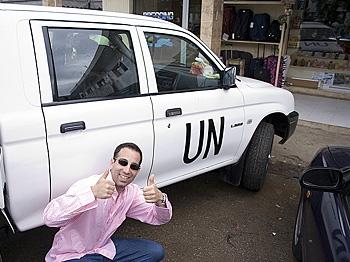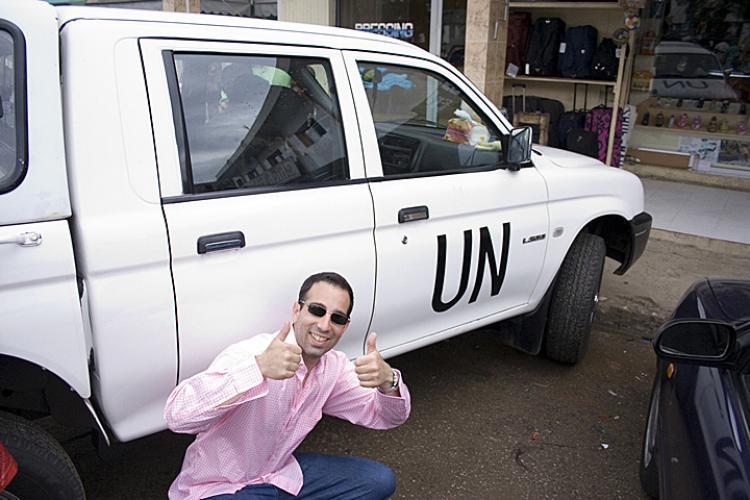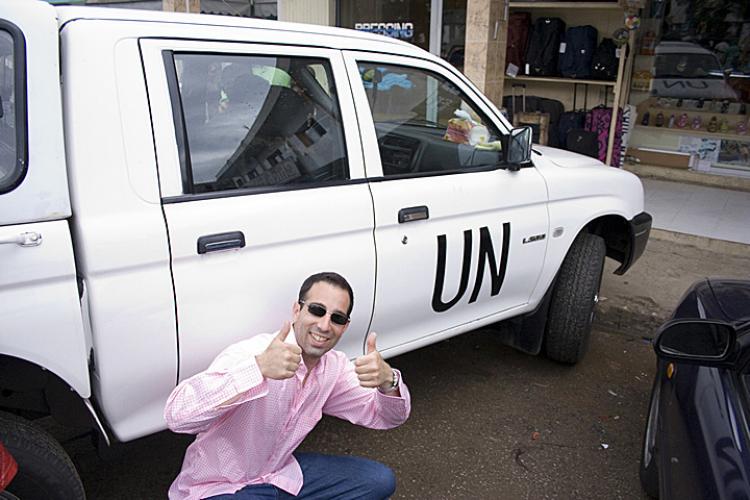As reports of human rights violations and international conflicts arise, however; evidence reveals that the “peace keeping” force, driven by greed and power, “actually enables evil and sows global chaos” according to the film’s press notes.
I had the opportunity to meet up with the writer-director-producer, Ami Horowitz at a café in Santa Monica while he was traveling from his home in New York to Los Angeles in late January.
“I had a position going into this, as bad as I thought it was, it was far worse than I could have imagined.”
The film unfolds with incident after appalling incident, by way of footage and interviews, including former U.N. ambassador John Bolton, former CIA Director James Woolsey, former U.N. weapons inspector Charles Duelfer, Nobel laureate Jody Williams, and others chronicling the debacles and atrocities that have resulted in sexual assault, fraud, and genocide.
Just a few examples of the U.N.’s mismanagement and abuse are “The Oil for Food Program” considered by some to be the largest U.N. humanitarian effort ever conceived, which raised enormous ethical concerns; Cote d'Ivoire, where U.N. peacekeeping forces fired into a crowd of unarmed protesters, injuring and killing dozens’ and the well documented genocide in Darfur.
Horowitz, an investment banker in his mid 30’s with a wife and two young daughters, describes the pivotal moment which compelled him to give up his successful career, catapulting him into this labor intensive film project.
One Saturday night, he recalls, he was sitting home watching Michael Moore’s Bowling for Columbine when the idea hit him—and hard. With the U.N. on his mind, troubled by the unrest in Rwanda, he looked at the screen knowing that it was possible, and perhaps imperative to take on such an ambitious film project to expose elements of corruption and ineptitude of the U.N.—“I didn’t sleep at all that night.”
Six months later he gathered together an A-Team of award winning documentary filmmakers to ensure the quality that his message warranted. Cinematographer Bob Richman, who had worked on the Academy Award-winning documentary An Inconvenient Truth and Oscar nominee My Architect and cinematographer Wolfgang Held was the cinematographer for the award winning, Some Kind Of Monster. Editor, Doug Abel’s credits include the Academy Award winning documentary The Fog of War, and the Emmy Award winning NBC hit sitcom “30 Rock.”
Horowitz’s financial background was certainly invaluable in helping to raise the budget for the film which neared $2 million.
When asked what he believes the U.N. might be a metaphor for, the articulate and thoughtful Horowitz answered, “There is a fight in this world between good and evil, and the U.N. is a reflection of that struggle to discern between good and bad. We have lost our way somehow, we can’t discern between right and wrong, good and evil.”
Given the severe level of corruption and moral deficiency of our world today, as exemplified in this film, Horowitz explains that he considers himself a “short term pessimist and a long term optimist. It will be very hard to turn this ship around [as there is] no real moral backbone in the U.N.” Nonetheless, says the philosophical filmmaker, “Good will always triumph over evil—I think the same will happen here.”







